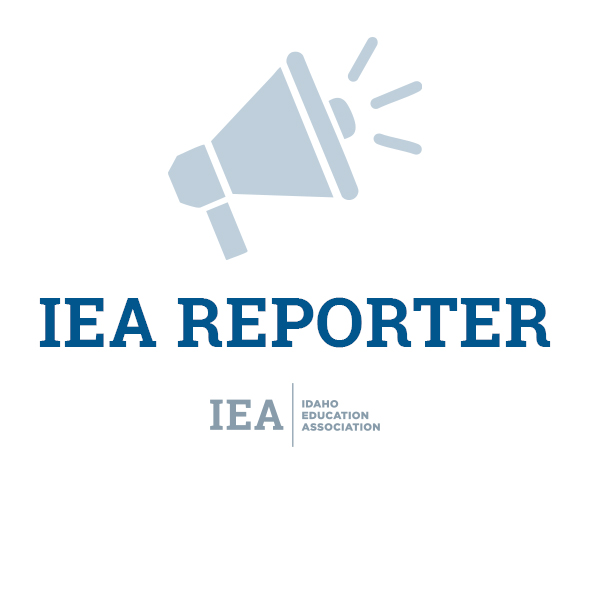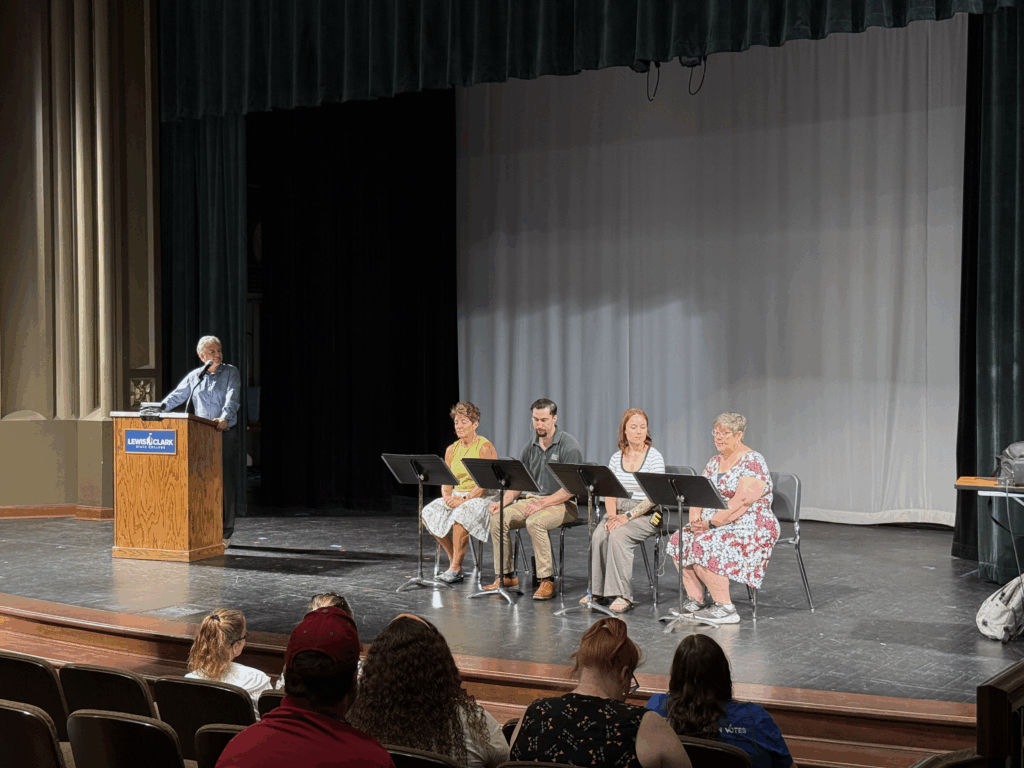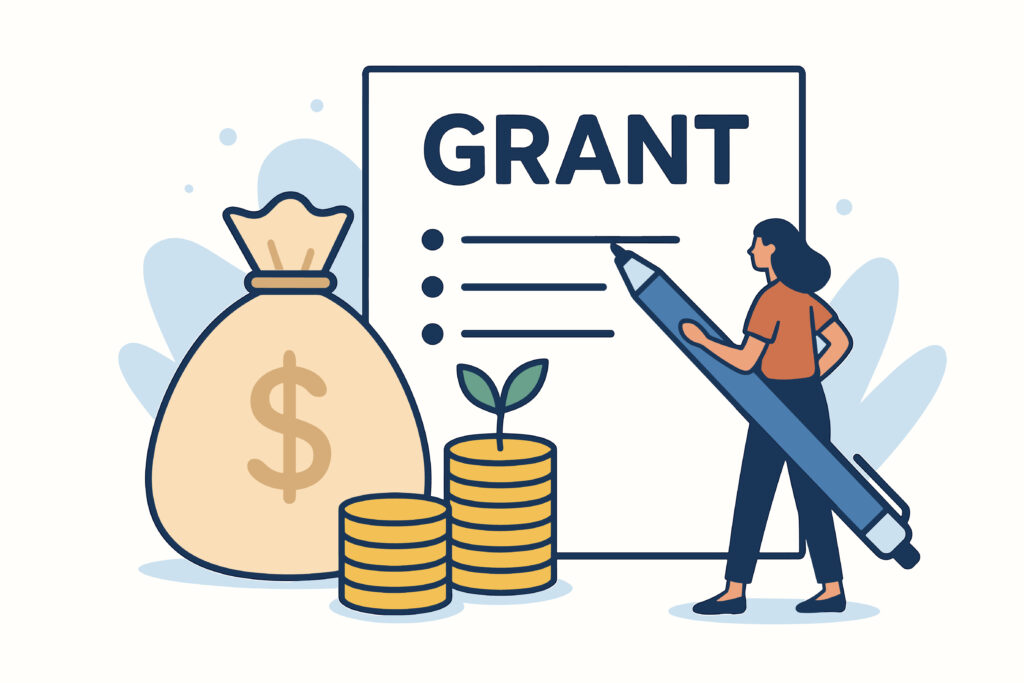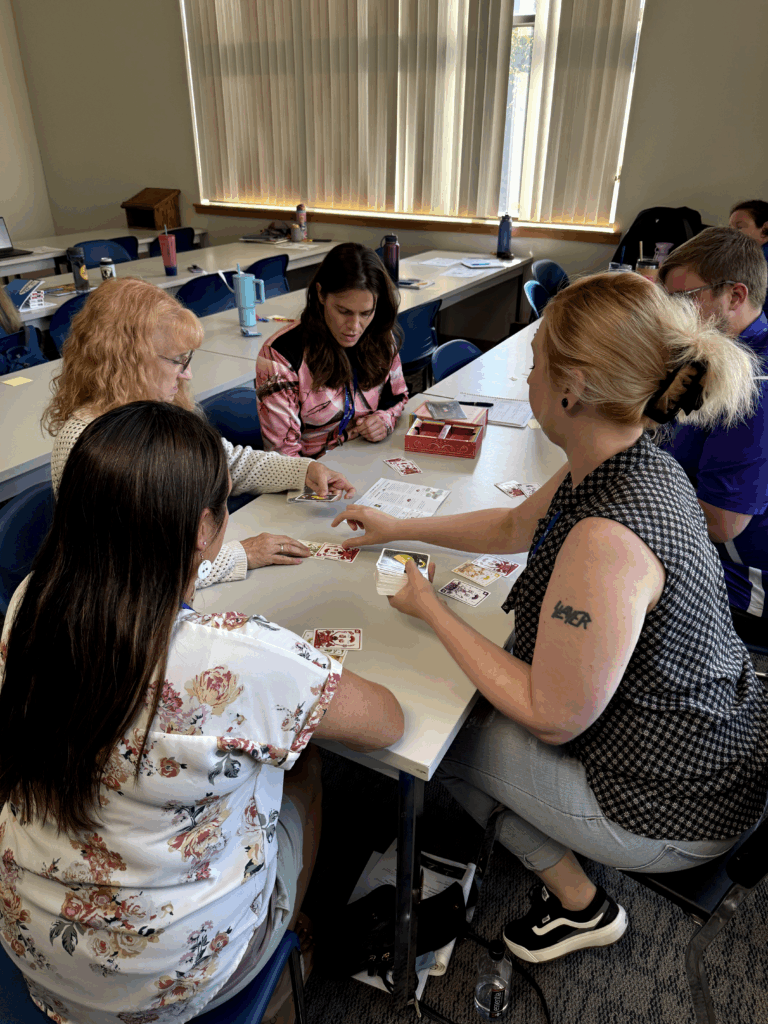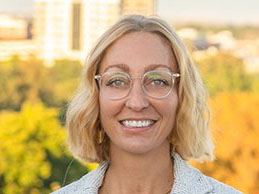
Monica Church
Idaho Education Association members endorsed a slate of pro-public education candidates throughout the state for the Idaho Legislature. As part of the endorsement process, IEA asked candidates to respond to a questionnaire about the issues that are most crucial to Idaho’s public school educators. As we approach the crucial Nov. 5 election, we’ll share their responses with members.
Here’s our Q&A with Monica Church, a Democrat running for election in Boise’s District 19A. Her answers have been lightly edited for spelling, grammar, brevity and clarity.
What is your relationship to Idaho public education? I am a product of a great Idaho public education. I have taught in Idaho’s public schools, charter school system, and for Idaho Digital Learning Academy for nearly two decades. My husband is an Idaho public school teacher. I have a child in the public school system. I am a member of the Boise Education Association/Idaho Education Association.
Idaho does not fully fund its public education system. How would you propose to change that? After 30 years of the legislative majority shirking their constitutional mandate to provide a uniform free public education to all Idahoans, I believe it is time to take the issue public. Far more public than it has been in past years. Public school advocates in the Idaho Legislature often are advocating for or against 30 different important issues at a time, and education funding comes in and out of the session dialogue. Further, education spending and educational choice narratives and policy proposals are often left for the end of the legislative session when the public and the lawmakers are exhausted; this is by design.
Every issue facing Idaho is important and necessary to address, and I propose a public education caucus of lawmakers, media, community organizers, public service leaders from all sectors and other vocal advocates should align and create, disseminate, and promote language that brings all issues back to the need for the Legislature to fully fund public education. With the right coalition and PR team, public education supporters can hammer home the need for the Legislature to follow their oath and the law, and fully fund a uniform free public education for the betterment of every aspect of Idaho life.
As a veteran teacher of high school, junior high and undergraduate American history, U.S. government and politics and economics, I am acutely aware that the majority of people in this state and across the nation do not understand how schools are funded. Adults are often unaware of the difference between the U.S. Department of Education, the state departments of education, and the local tax school districts. There absolutely has to be a targeted messaging system across the state to increase understanding of how schools are funded, why they look different, and who is to blame for the lack of uniformity, teacher retention, programs, etc. I believe a public education caucus made up of trusted voices with sharpened and targeted messages and data is the only way to get the state on the same page. And in order for Idaho to move forward, there must be a universal understanding of the facts.
What is your position on vouchers to fund private school education? Privatizing public schools violates the tenets of democracy. Vouchers are a scheme that promotes capitalism and the ingenuity of the wealthy few over the general welfare of the whole. A school voucher system perpetuates existing inequalities in education. By allowing families to use public funds for private schools, the system will disproportionately benefit those with means — both in terms of those already in the private school market, as well as those able to navigate the complexities of the voucher process — over and above hardworking Idahoans and our often underrepresented rural and marginalized communities. This can reinforce socioeconomic segregation and is a further step away from a uniform, free, quality education for all Idahoans.
Additionally, and most notably, private schools are not required to adhere to the same standards of inclusion as public schools, creating a legal segregation between students with exceptional needs and those without.
Idaho students are facing increasing mental health challenges, such as anxiety and depression. What steps, if any, would you propose to counter that? A large part of the value of public school is the formalized relationship building that happens in a classroom. When teachers feel emotionally invested, students feel connected, safe, and are better able to regulate their own emotions as well as speak up when they or someone they know is having a mental health crisis. The best way to create this positive, compassionate environment is to lower class sizes and let the certified and licensed educators be both the content and social emotional experts they are by training.
Another solution for students and families is to align start times with science and common sense. Secondary students should not be traveling to school in the dark, and they should not compromise their physiological and psychological well-being and need for sleep to accommodate bus scheduling.
What is your position on fast-track, alternate routes to educator certification? Depends. How is the teacher education program at the higher learning institutes in the state? What are the deficiencies in the state? Who is certifying the educators? Are all educators taking the same PRAXIS exams, and are they required to comply with all other state requirements (Vector, PLP, CLC, other PD, fingerprinting, HQ and CTE, mandatory credit and PD recertification, etc.)? I have seen many ways alternative routes have been a great opportunity for teachers and school districts, and I am very inclined to propose an alternative route for current Idaho educators to receive CTE and SpecEd certification to increase retention, fill-in hard to hire for positions, and create more postsecondary and career-focused courses for all students. I have also seen how alternative routes to certification have removed barriers to entry in undesirable ways that are bad for students, families, and the whole of a robust uniform free public education.
Idaho educators are frequently disrespected and targeted by anti-public education forces. What is your reaction to that? I know there is great power in the personal, and helping people connect to their local educators as partners in the success of every student is important. Highlighting the value and impact of a strong public education on students, families, and all of our shared communities is critical for reducing and eliminating anti-public education targeting. And I believe the entire public sector should come to the defense of public educators and public education. It is on all publicly funded employees to remind the people in Idaho of the utility of public service and civil service jobs.
What are the main points you want IEA members to remember about you and your candidacy? I have worked in nearly every school district in the state, either face-to-face or through IDLA.
I have taught or administrated in every level of public school, including public charter schools. I have coached, advised clubs, written curriculum, built new programs, taught EL, alternative, virtual, AP, and general education courses. I have co-taught with ML professionals, served as department chair, instructional lead, and as a student teacher and new-to-profession mentor. I am the wife of a public educator, the mother of a child in public education, and a strong advocate for our public schools. Immediately upon joining Boise Schools I became an IEA member and served as a building rep for many years. There are a million reasons I am a candidate for the Idaho Legislature, and education is at the top.
